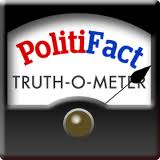
Deepening Democracy in the United States: “Elections with integrity” require accurate information
I think it’s fair to say that democracy in the United States is already pretty “deep”. As a US citizen, I feel incredibly lucky to live in a society whose history is rooted in democratic ideals—a society that continues to benefit from the types of “elections with integrity” that the 2012 Report of the Global Commission on Elections, Democracy, and Security promotes.
It’s therefore tempting to say that everything is just fine, that democracy in the United States is “deep” enough.
But I would argue that democracy, in any meaningful sense, requires an informed citizenry—and, accordingly, that an informed citizenry is a necessary precondition for all of the recommendations that the 2012 Global Commission Report contains.
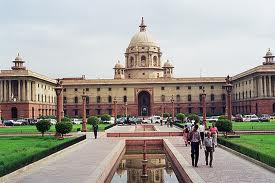
Deepening Democracy in India: Fine-tuning rules and procedures to strengthen parliamentary oversight on the government
The Deepening Democracy report by the Global Commission on Elections, Democracy and Securitydiscusses the importance of improving the integrity of elections. While fairness, funding and conduct of elections undoubtedly is a concern that citizens espouse worldwide, that in itself may not be a panacea to fulfil the function of representative democracy. Sometimes democracy itself is undermined in democratically elected Parliaments due to rules biased towards the elected government, and not giving sufficient power to opposition members and independent members of Parliament to voice their concerns.

Deepening Democracy Means Looking Beyond Elections
We must remember that democracies are not self-executing systems; they stand on complex political institutions that reflect the political power of the citizenry. For many countries, then, the challenge is keeping the population constructively engaged in the democratic process following successful free and fair elections.

Deepening Democracy, Deepening Divides: Can democracy and the international refugee regime coexist?
A report on deepening democracy released by the Global Commission on Elections, Democracy and Security recognised that the enfranchisement of displaced populations, including refugees, ‘is critical for ensuring the integrity of elections and the establishment of democracy’. But this statement belies a deeper interaction, and even conflict, between the international refugee regime and democracy.
What would ‘deepening democracy’ mean for the refugee regime? I suggest that strengthening democratic institutions could deepen divides between refugees and host communities. To ensure that the international refugee regime and democracy can successfully co-exist, we must think not just of deepening democracy, but of also balancing it with the rights of refugees.
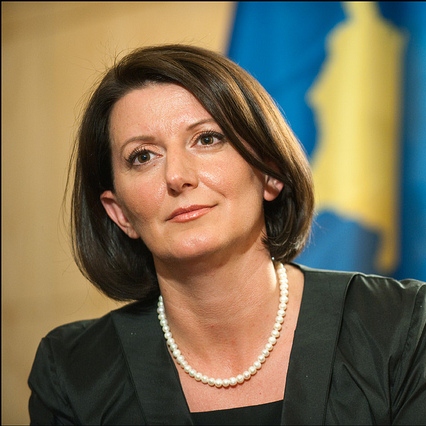
Fighting corruption: Effective examples from surprising places
What could Hong Kong, Liberia, and Kosovo teach us? Perhaps, rather unexpectedly, about successful ways of dealing with public corruption. Corruption is effectively a hidden tax on living and doing business in many emerging democracies and, as a result, is one of the most serious obstacles to deepening democracy and economic development. It is particularly dangerous when corruption turns into a culturally accepted practice.
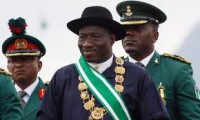
Deepening Democracy: In Nigeria, improving government accountability means paying politicians less
While the Global Commission report on Deepening Democracy provides insightful recommendations on strategies for improving electoral integrity, we must remember that elections are just one step in the democratic process. Certain precursors need to be made right in order to make the report’s recommended strategies achievable. Having lived in Nigeria and experienced the democratic process there, I am of the opinion that one vital measure needed to strengthen its nascent democracy is to drastically reduce the excessive financial incentives that accompany political positions. The quest for political leadership must be guided by a passion to lead and make changes. Sadly, these are noble incentives overshadowed by the “what is in for me?” mentality of personal gratification that has eaten deep into the fabric of the country’s political space.

Deepening Democracy in Europe: Participatory budgeting is a solution to the austerity vs democracy conundrum
In its mission statement the Global Commission on Elections, Democracy and Security points out that while elections are vital to democracy, on their own they are not sufficient. According to, “Deepening Democracy”, a recent report, elections also need integrity. They are right. But elections are insufficient in at least another respect too. Democracy is not limited to casting a ballot once every four or five years; the nature of democratic government also manifests itself in the period between elections. This is best exemplified by the current sovereign debt crisis in the Eurozone.
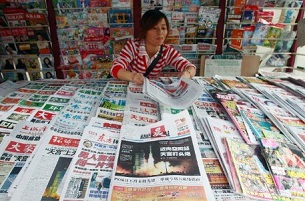
How to improve democracy in China? Start with a free press
Before joining the first cohort of students at the Blavatnik School of Government, I worked as a journalist for state-owned China Central Television, the biggest media outlet in China. Before that I spent four years working as a reporter and anchor for the Beijing Television Station, the local outlet for China’s capital city, also owned and operated by the government. Based on this, if I’m asked, about a single measure would strengthen democracy in my home country, I would firstly respond that you have to have more than one measure to reach that goal. However, if I can only choose one, I would definitely vote for free speech and an independent media.









